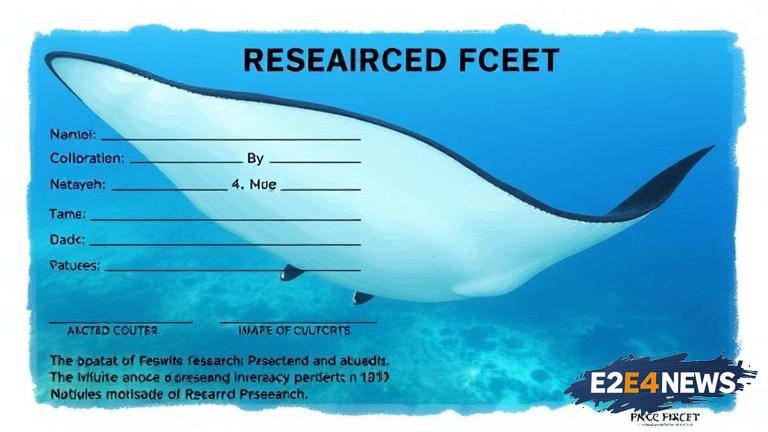The Florida Fish and Wildlife Conservation Commission (FWC) has recently issued a permit for research on manta rays, a large species of ray that can be found in warm and tropical waters around the world. This permit is a significant step forward in the conservation of these magnificent creatures. Manta rays are known for their distinctive appearance, with large pectoral fins and a broad, flat body. They are filter feeders, using their cephalic fins to funnel plankton and small fish into their mouths. Despite their size, manta rays are incredibly agile and can leap out of the water in a spectacular display of acrobatics. However, manta rays are facing numerous threats, including habitat loss, entanglement in fishing gear, and overfishing. The FWC permit will allow researchers to study the behavior, habitat, and population dynamics of manta rays in Florida waters. This research will provide valuable insights into the ecology of these animals and inform conservation efforts. The permit was issued to a team of scientists who have been studying manta rays for several years. The research team will use a combination of field observations, acoustic tracking, and genetic analysis to study the manta ray population. The study will focus on the coastal waters of Florida, where manta rays are known to congregate in large numbers. The researchers will also investigate the impact of human activities, such as fishing and coastal development, on manta ray populations. The FWC permit is a significant step forward in the conservation of manta rays, as it will provide valuable data and insights that can be used to inform management decisions. The research will also raise awareness about the importance of conserving manta rays and their habitats. Manta rays are an important part of the marine ecosystem, playing a key role in maintaining the balance of the ocean’s food chain. The conservation of manta rays is not only important for the health of the ocean, but also for the economy, as these animals are an important tourist attraction in many parts of the world. The FWC permit is a positive step towards ensuring the long-term survival of manta rays, and it is hoped that the research will provide valuable insights into the conservation of these incredible animals. The study will also contribute to the development of effective conservation strategies, not only for manta rays but also for other marine species that are facing similar threats. Overall, the issuance of the FWC permit is a significant milestone in the conservation of manta rays, and it is expected to have a positive impact on the long-term survival of these incredible animals.
